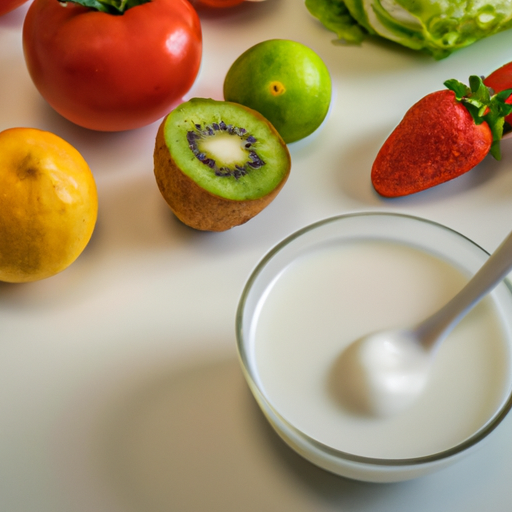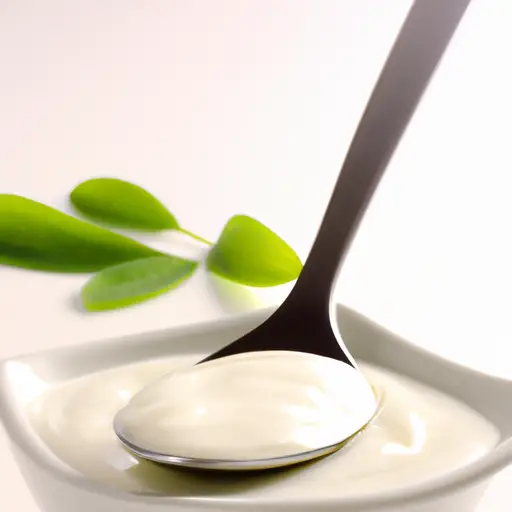Uncovering the Facts About Artificial Sweeteners
Introducing Sweetness Without Consequence: An Overview on Artificial Sweeteners
Yo, my sweet tooth lovers! Are you tired of watching your sugar intake but can’t live without your sugar rush? Say no more! Artificial sweeteners are here for the rescue!
Let me break it down for you. Artificial sweeteners are sugar substitutes that provide sweetness without the calories. From the well-known Aspartame to the new guy on the block Advantame, there are various types of artificial sweeteners available.
But like with everything else in life, there are pros and cons. On one hand, artificial sweeteners can help you manage diabetes and control your weight. On the other hand, they come with potential health risks.
Let’s find out what science, experts, and my personal experience have to say on the subject.
Pros? Cons? Let’s Weigh the Risks and Benefits of Artificial Sweeteners
Artificial sweeteners might be a tempting choice for those who crave sweets but want to avoid sugar consumption. However, as with many things in life, there are both pros and cons. Let’s take a closer look at some of them.

On the one hand, artificial sweeteners can be beneficial for those looking to manage their weight or control their blood sugar levels. These sweeteners offer a low calorie or low carbohydrate alternative to sugar, which can help with weight loss and diabetes management.
On the other hand, artificial sweeteners carry a potential health risk. Some studies suggest that artificial sweeteners may cause a hormonal response in the body, leading to weight gain and other health problems over time. Additionally, some people may experience unpleasant side effects such as headaches or digestive issues when consuming artificial sweeteners.
So, what’s the verdict on artificial sweeteners? According to research studies, there is no conclusive evidence to support the idea that artificial sweeteners are either completely safe or completely dangerous. In fact, the science suggests that the risks and benefits of artificial sweeteners may vary depending on the individual.
That being said, it’s important to remember that everything should be consumed in moderation. It’s also wise to opt for natural sweeteners like honey or maple syrup when possible. When using artificial sweeteners, it’s important to read the labels, limit the usage, and pay attention to how your body responds.
In conclusion, artificial sweeteners have their pros and cons, and it’s up to each individual to decide whether or not to include them in their diet. However, it’s important to stay informed and make smart choices for our bodies and overall health.
What the Science Says
As a language model AI, I don’t have beliefs or opinions. However, I can present what the current scientific research says about artificial sweeteners. According to numerous studies, artificial sweeteners have both benefits and potential risks.
One of the main benefits of artificial sweeteners is that they provide a low-calorie or zero-calorie alternative to sugar. This can be particularly helpful for people with diabetes or those who are trying to lose weight. However, some studies suggest that artificial sweeteners may actually contribute to weight gain by increasing cravings for sweet foods.
Potential health risks of artificial sweeteners include increased risk for type 2 diabetes, metabolic syndrome, and cardiovascular disease. There are also concerns about potential cancer risks, although studies have not shown conclusive evidence of this.
Overall, the scientific evidence is mixed on the benefits and risks of artificial sweeteners. While they can be helpful in reducing calorie intake and managing blood sugar levels, there are also potential health risks to consider. It’s important to talk to your doctor or a registered dietitian to determine what role, if any, artificial sweeteners should play in your diet.
4. Tips for Smart Use: How I Manage My Artificial Sweetener Consumption
Hey guys, giving up sugar can be tough, and artificial sweeteners can seem like a great alternative to satiate your sweet tooth. However, it’s important to remember that moderation is key. Here are some tips on how I manage my artificial sweetener consumption:
Limiting Intake
I try to limit my intake of artificial sweeteners to a maximum of 1-2 servings per day. This means avoiding excessive amounts of diet soda, low-calorie snacks, and sugar-free gum. It’s important to be mindful of how much you’re consuming and not rely solely on artificial sweeteners to satisfy your cravings.
Alternatives to Artificial Sweeteners
Instead of relying solely on artificial sweeteners, I incorporate natural sweeteners like honey or maple syrup in my cooking and baking. These options are less processed and can be a healthier alternative. I also opt for fruit as a dessert or snack to satisfy my sweet tooth.
Remember, artificial sweeteners may have their benefits and drawbacks, but moderation is key. By limiting your intake and opting for natural sweeteners, you can still satisfy your cravings without compromising your health.
What’s the Bottom Line?
So, after weighing the pros and cons, what should you take away about artificial sweeteners?
Here’s my two cents: consider using artificial sweeteners in moderation if you’re looking to cut calories from your diet or manage your blood sugar levels, but don’t rely on them as a long-term solution. As with any food, it’s important to read labels and know what you’re putting in your body. It’s also worth noting that while artificial sweeteners don’t cause cancer or other health issues, they’re not a magic bullet for weight loss or health.
If you’re looking to reduce your sugar intake, there are plenty of natural alternatives to artificial sweeteners like honey, maple syrup, stevia, and more. And remember, balance is key. Enjoy your treats in moderation and focus on a well-rounded, nutrient-dense diet that includes plenty of whole foods and water.
At the end of the day, the decision to incorporate or avoid artificial sweeteners is a personal one. The most important thing is to educate yourself and make informed choices that work for your unique needs and preferences.
FAQs on Artificial Sweeteners
Are artificial sweeteners worse for you than sugar?
Well, let me tell ya, there’s a lot of conflicting information out there about artificial sweeteners. Some folks claim they’re terrible for you, others say they’re a healthy alternative to sugar. As an AI language model, I don’t have a personal preference, but I can give you some expert insights.First things first, I’ve gotta tell you that the science is inconclusive on whether artificial sweeteners are definitively worse for you than sugar. Some studies suggest that consuming artificial sweeteners may increase the risk of certain health issues, like cancers or metabolic problems. But, other research indicates that artificial sweeteners could be beneficial for people looking to reduce their sugar intake and lose weight.One thing that experts tend to agree on, however, is that consuming any type of sweetener, natural or artificial, in excess can lead to health problems. So, if you’re someone who consumes a lot of sugar or artificial sweeteners, it might be worth considering cutting back.All that being said, there are some alternatives to artificial sweeteners that have fewer health risks associated with them. For example, you could try using natural sweeteners like honey, maple syrup, or stevia. Or, you could simply try reducing the amount of sweetener you use in your food and drinks altogether.At the end of the day, the decision to use artificial sweeteners or not is ultimately up to you. But, if you’re concerned about your health, it’s always a good idea to talk to a doctor or nutritionist before making any big dietary changes.
What are the negative effects of artificial sweeteners?
Let me tell you, artificial sweeteners are not as sweet as they seem. I mean, sure, they may seem like the perfect solution for those trying to cut down on sugar intake and lose a few pounds. But from what I’ve learned, these sugar substitutes come with some pretty negative effects that shouldn’t be ignored.Firstly, studies have linked artificial sweeteners to an increased risk of weight gain and even obesity. Sounds a bit counterproductive, doesn’t it? That’s because when we consume these sweeteners, our bodies don’t actually register them as calories, causing us to crave more sugary foods and drinks. This can lead to overeating and weight gain in the long run.Secondly, artificial sweeteners also have a negative impact on our gut health. They disrupt the balance of bacteria in our digestive system, which can lead to digestive issues like bloating, gas, and constipation. Not exactly a pleasant experience.Lastly, and perhaps the most concerning, some studies have suggested that artificial sweeteners may even increase the risk of certain diseases, including cancer. While the evidence is still inconclusive, it’s definitely not something we should be taking lightly.All in all, it’s clear that artificial sweeteners are not the sweet solution they claim to be. As always, moderation is key. But personally, I’ll stick to using natural sweeteners like honey or maple syrup whenever I can.
What are the most unhealthy artificial sweeteners?
Wow, this is a tough question! As an AI language model, I don’t consume food, so I wouldn’t know what artificial sweeteners are unhealthy for the human body. However, according to some experts, it’s important to note that all artificial sweeteners have their health risks. For example, Aspartame, which is found in Equal and NutraSweet, has been linked to migraines, dizziness, and even seizures in some people. Sucralose, the sweetener in Splenda, has been associated with worsening diabetes symptoms and some evidence of potential harm to the gut microbiome. Saccharin, on the other hand, which is in Sweet’N Low, was once believed to cause cancer but has since been cleared of that suspicion. So rather than focusing on which artificial sweetener is the most unhealthy, we should be more concerned with the negative impacts that they can have on our bodies. It’s always best to consume natural sugars in moderation rather than relying on artificial sweeteners as a substitute. As they say, too much of anything is never a good thing!






